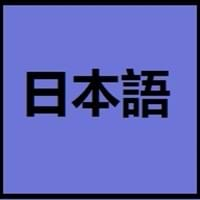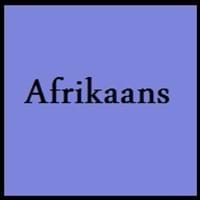Japanese vs Afrikaans
Countries
Japan
South Africa
National Language
Japan
South Africa
Second Language
Not spoken in any of the countries
Namibia, South Africa
Speaking Continents
Asia, Pacific
Africa
Minority Language
Palau
Botswana, Lesotho, Malawi, Swaziland, Zambia, Zimbabwe
Regulated By
Agency for Cultural Affairs (文化庁) at the Ministry of Education
Die Taalkommissie, National Languages Committee
Interesting Facts
- In Japanese Language, there are 4 different ways to address people: kun, chan, san and sama.
- There are many words in Japanese language which end with vowel letter, which determines the structure and rhythm of Japanese.
- Afrikaans Language is a mixture of English, Dutch, German, French and some South African language like Xhosa.
- Afrikaans Language lacks case and gender distinctions.
Similar To
Korean Language
Dutch Language
Derived From
Not Available
Dutch Language
Alphabets in
Japanese-Alphabets.jpg#200
Afrikaans-Alphabets.jpg#200
Writing Direction
Left-To-Right, Horizontal, Top-To-Bottom
Left-To-Right, Horizontal
Hello
こんにちは (Kon'nichiwa)
hallo
Thank You
ありがとう (Arigatō)
Dankie
How Are You?
お元気ですか (O genki desu ka?)
Hoe gaan dit
Good Night
おやすみなさい (Oyasuminasai)
goeie nag
Good Evening
こんばんは (Konbanwa)
Goeienaand
Good Afternoon
こんにちは (Konnichiwa!)
Goeie middag
Good Morning
おはよう (Ohayō)
goeie more
Please
お願いします (Onegaishimasu)
asseblief
Sorry
ごめんなさい (Gomen'nasai)
jammer
Bye
さようなら (Sayōnara)
Not Available
I Love You
愛しています (Aishiteimasu)
Ek het jou lief
Excuse Me
すみません (Sumimasen)
Verskoon my
Dialect 1
Sanuki
Kaapse Afrikaans
Where They Speak
Kagawa
Not Available
How Many People Speak
Not Available
Dialect 2
Hakata
Oranjeriverafrikaans
Where They Speak
Fukuoka
Not Available
Dialect 3
Kansai
Baster Afrikaans
Where They Speak
kansai
Namibia
Speaking Population
Not Available
Second Language Speakers
Not Available
Native Name
日本語
Afrikaans
Alternative Names
Not Available
Cape Dutch
French Name
japonais
afrikaans
German Name
Japanisch
Afrikaans
Pronunciation
/nihoɴɡo/: [nihõŋɡo], [nihõŋŋo]
[ɐfriˈkɑːns]
Ethnicity
Japanese (Yamato)
Afrikaners
Language Family
Japonic Family
Indo-European Family
Subgroup
Not Available
Germanic
Branch
Not Available
Western
Early Forms
Old Japanese, Early Middle Japanese, Late Middle Japanese and Early Modern Japanese
Cape dutch or kitchen dutch
Standard Forms
Japanese
Standard Afrikaans
Language Position
Not Available
Signed Forms
Signed Japanese
Signed Afrikaans (signs of SASL)
Scope
Individual
Individual
ISO 639 6
Not Available
afrs
Glottocode
nucl1643
afri1274
Linguasphere
45-CAA-a
52-ACB-ba
Language Type
Living
Living
Language Linguistic Typology
Subject-Object-Verb
Subject-Object-Verb
Language Morphological Typology
Agglutinative, Synthetic
Analytic
Japanese and Afrikaans Language History
Comparison of Japanese vs Afrikaans language history gives us differences between origin of Japanese and Afrikaans language. History of Japanese language states that this language originated in 1185 whereas history of Afrikaans language states that this language originated in 17th Century. Family of the language also forms a part of history of that language. More on language families of these languages can be found out on Japanese and Afrikaans Language History.
Japanese and Afrikaans Greetings
People around the world use different languages to interact with each other. Even if we cannot communicate fluently in any language, it will always be beneficial to know about some of the common greetings or phrases from that language. This is where Japanese and Afrikaans greetings helps you to understand basic phrases in Japanese and Afrikaans language. Japanese word for "Hello" is こんにちは (Kon'nichiwa) or Afrikaans word for "Thank You" is Dankie. Find more of such common Japanese Greetings and Afrikaans Greetings. These greetings will help you to be more confident when conversing with natives that speak these languages.
Japanese vs Afrikaans Difficulty
The Japanese vs Afrikaans difficulty level basically depends on the number of Japanese Alphabets and Afrikaans Alphabets. Also the number of vowels and consonants in the language plays an important role in deciding the difficulty level of that language. The important points to be considered when we compare Japanese and Afrikaans are the origin, speaking countries, language family, different greetings, speaking population of these languages. Want to know in Japanese and Afrikaans, which language is harder to learn? Time required to learn Japanese is 88 weeks while to learn Afrikaans time required is 24 weeks.





